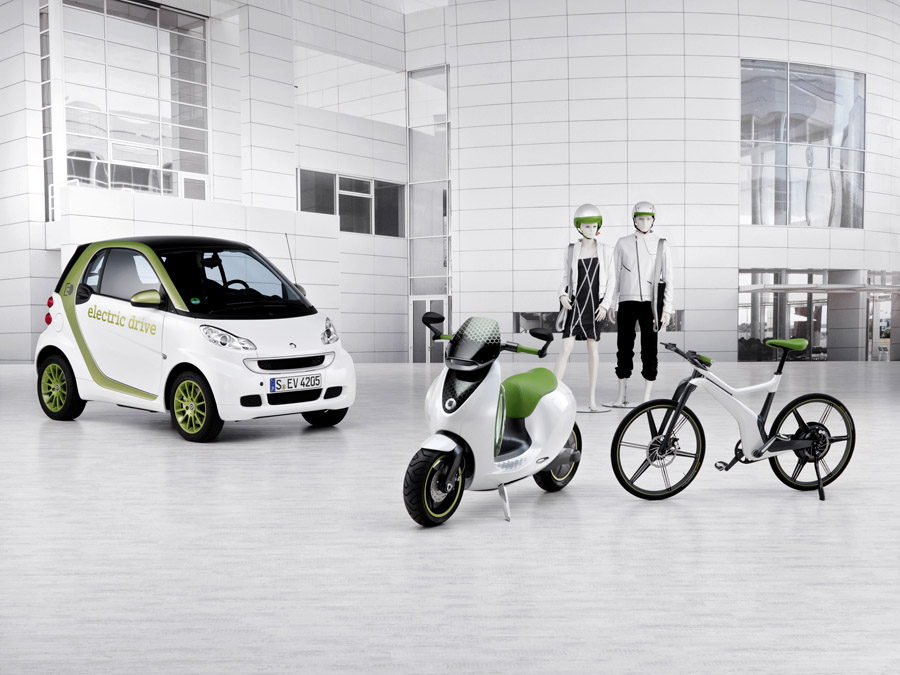Paris 2010: Smart
By John LeBlanc
PARIS – Already selling the smallest car you can buy in Canada, it seems unfathomable that Mercedes-Benz’s Smart brand would launch two new concepts at this year’s Paris show smaller than its existing ForTwo micro car.
In truth, the concepts aren’t cars at all. One’s an electric scooter, the other an electrically assisted bicycle. And neither will be available in Canadian Smart showroom anytime soon. But taking a longer view, the two-wheel Smart Escooter and Ebike concepts (plus the Mini e-scooters that were also in Paris) hint that automakers may need to make more than cars to stay in business in the future. Smart readily admits that “two-wheelers will enable the brand to also reach considerably younger people who do not yet have a car driving license.”
In theory, the Smart Escooter, has a top speed of 45 km/h, via a 48-volt lithium-ion battery pack that has a range of “up to” 100 km. It can be charged at any standard household power socket, within three to five hours. Included on the Escooter are car like safety features like an airbag, ABS anti-lock brake system and a Blind Spot Assist.
The Ebike concept could be even more accessible. You don’t need any license because it can’t go faster than 25 km/h. Smart says the aluminum Ebike weighs approximately 22 kilograms, making it among electric bicycles one of the “lightweights” in its class. The rider still has to pedal most of the time. But the electric “booster” is a 250-watt brushless direct current wheel hub motor that is integrated in the rear wheel, mainly to be used on hills, not drag racing city buses.
You can see how both of these two-wheelers would make sense in crowded European cities that already have scooter and bicycle cultures. And whether or not either of these two-wheel Smarts go into production, or ever come to Canada, is yet to be seen.
But do you think Canadian car owners will ever consider scooters and bikes as replacements for their cars?
And are there any advantages to buying one from a car brand?






![[del.icio.us]](https://www.straight-six.com/wp-content/plugins/bookmarkify/delicious.png)
![[Digg]](https://www.straight-six.com/wp-content/plugins/bookmarkify/digg.png)
![[Facebook]](https://www.straight-six.com/wp-content/plugins/bookmarkify/facebook.png)
![[Google]](https://www.straight-six.com/wp-content/plugins/bookmarkify/google.png)
![[Reddit]](https://www.straight-six.com/wp-content/plugins/bookmarkify/reddit.png)
![[StumbleUpon]](https://www.straight-six.com/wp-content/plugins/bookmarkify/stumbleupon.png)
![[Twitter]](https://www.straight-six.com/wp-content/plugins/bookmarkify/twitter.png)
![[Email]](https://www.straight-six.com/wp-content/plugins/bookmarkify/email.png)